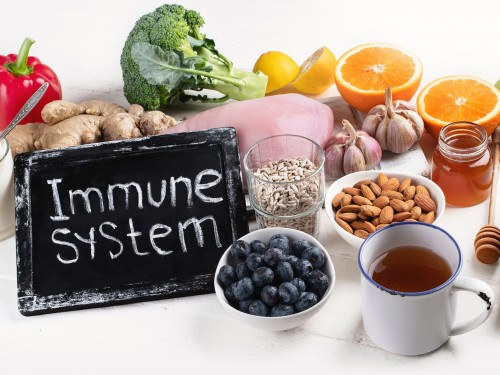More than 2,500 years ago, Hippocrates
said: “Let food be thy medicine and medicine be thy food.” Both nutrient intake
and incidence of disease usually influence the nutritional status. Hence, good
nutrition is crucial for health particularly in times when the immune system
might need to fight back.
Currently, the COVID-19 pandemic is the
leading challenge across the globe. Nutritional status is very important to
maintain a strong immune system against the virus. Limited access to fresh
foods may compromise opportunities to continue eating a healthy and varied diet
which could increase the susceptibility to infectious diseases. It can also
potentially lead to an increased consumption of highly processed foods, which
tend to be high in fats, sugars and salt. Nonetheless, even with few and
limited ingredients, one can continue eating a diet that supports good health.
A balanced diet will guarantee a strong
immune system that can help withstand any assault by the infectious diseases. In
the current situation, it is necessary to be aware of the specific types of
food that can improve our immune system in order to combat COVID-19.
Here are some professional and authentic dietary guidelines to withstand infectious diseases.
- Eat fruits daily (guava, apple, banana, strawberry, watermelon, grapefruit, pineapple, papaya, orange etc.) with a serving size of two cups (4 servings).
- Eat fresh vegetables (green bell peppers, garlic, ginger, green leafy vegetables, broccoli, green chili pepper etc.) 2.5 cups of vegetable.
- Eat legumes, whole grains and nuts, (beans, unprocessed maize, oats, wheat, millet, brown rice or roots such as yam, potato, cassava)
- Use nuts like almonds, coconut, walnuts etc.
- Consume gut health friendly foods such as probiotics rich foods (yoghurt), high-fiber foods (peas, oats, legumes etc.), as well as collagen-boosting foods (salmon and bone broth) are also good for gut health, as are mushrooms, garlic and onion.
- Red meat can be eaten once or twice per week, and poultry 2−3 times per week. Use foods from animal sources (e.g. fish, fish products, eggs, and milk).
- For snacks, choose fresh fruits and raw vegetables rather than foods that are high in sugar, salt or fat. Avoid irregular snacking.
- Do not overcook vegetables as it leads to the loss of water soluble nutrients.
- When using dried or canned fruits and vegetables, choose varieties without added sugar or salt.
- Limit the salt/sodium intake
- Consume unsaturated fats (found in avocado, fish, nuts, soy, olive oil, canola, corn oil, and sunflower) rather than saturated fats (found in butter, fatty meat, coconut, palm oils and cream).
- Maintain food safety measures to avoid cross-contamination
- Drink 8–10 glasses of water every day. It helps to transport nutrients in the blood, gets rid of waste, and regulates the body temperature.
- Avoid all fizzy, carbonated, concentrated juices, and all drinks which contain sugar.
- Maintain a healthy lifestyle of exercise, meditation, and regular sleep. Adequate sleep will help to support immune functioning.
- Eat at home to avoid contact with other people and try to reduce the chance of being exposed to COVID-19.
PS: A proper diet can help to ensure
that the body is in the strongest possible state to battle the virus.

Comments
Post a Comment